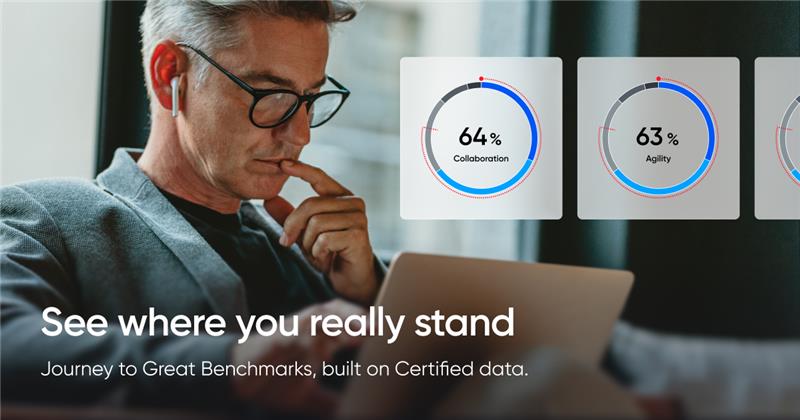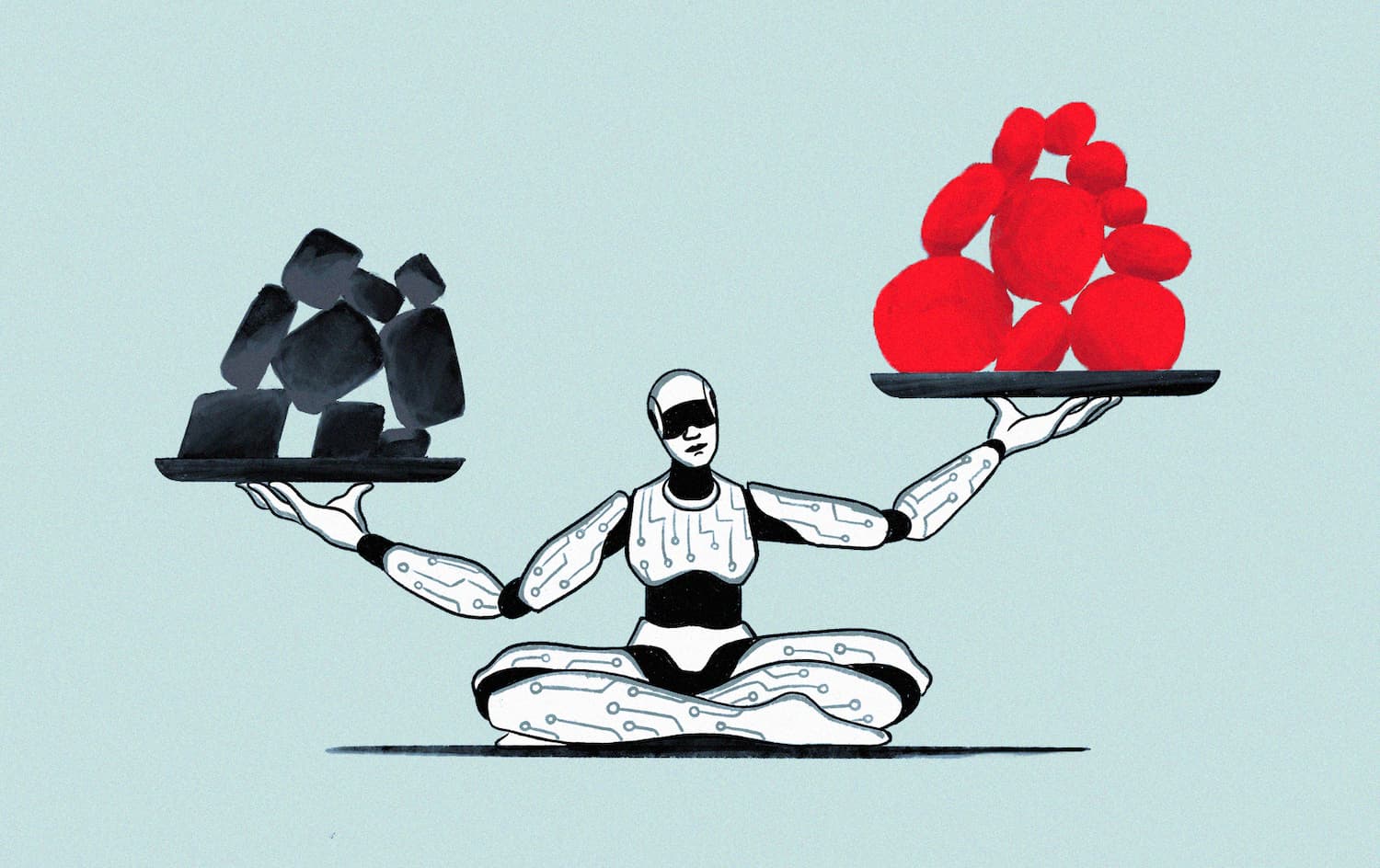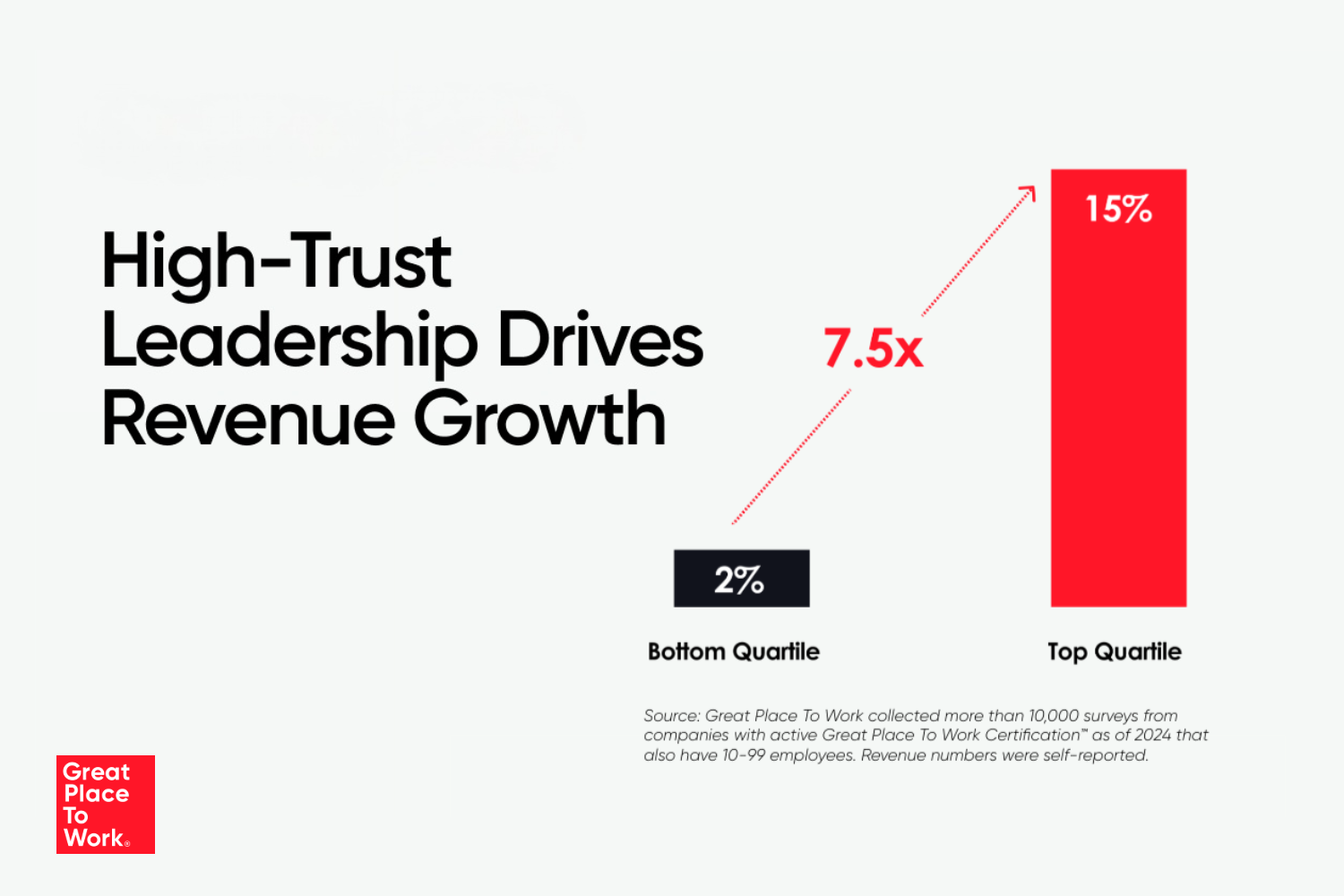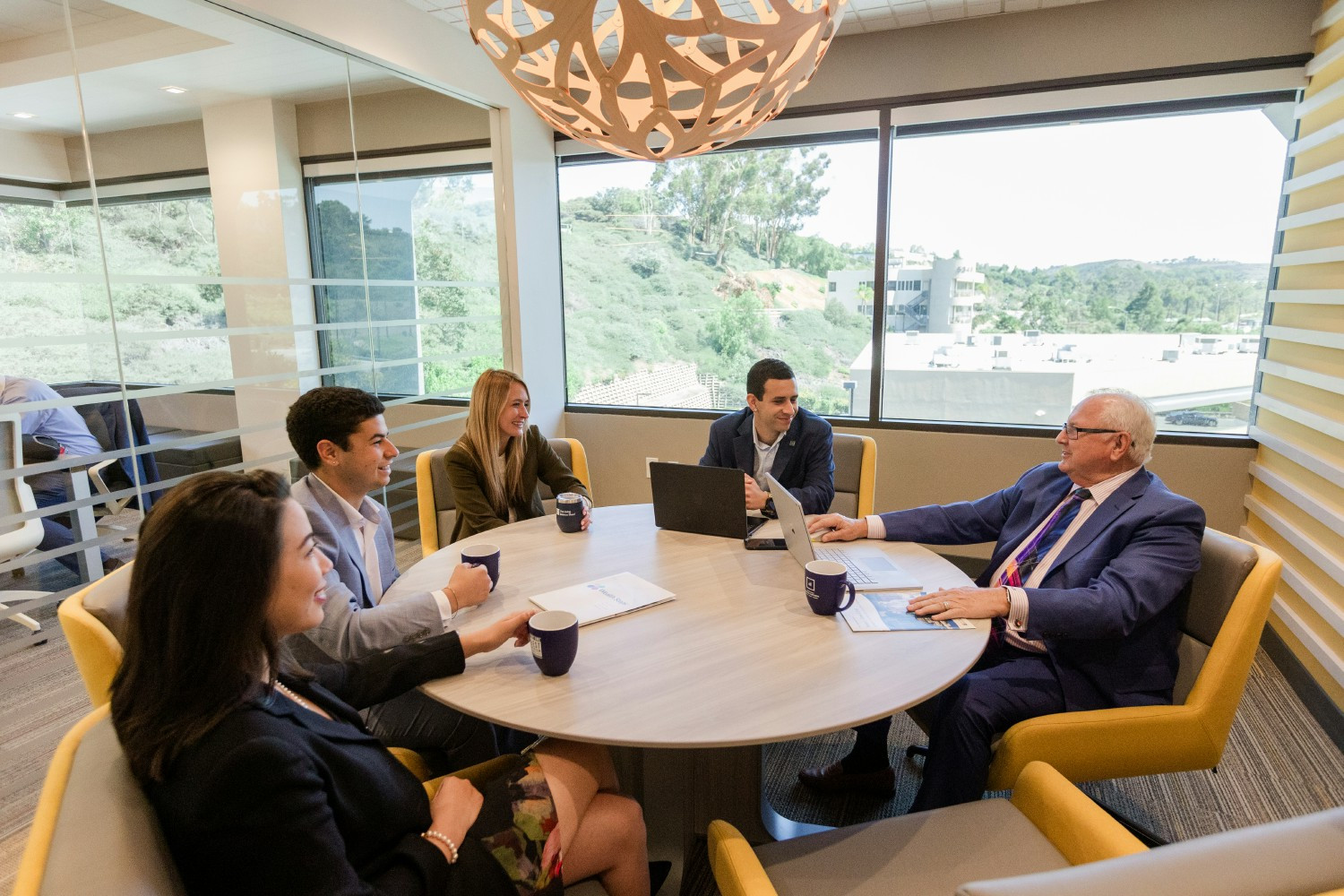AI (Artificial Intelligence), Best Workplaces, High-trust leadership
Julie Sweet doesn’t just talk about reinvention — she lives it.
As CEO, she has led Accenture through its biggest changes and continues to reshape how the company works and leads in the age of AI.
“Every leader needs to think of themselves as a reinventor,” she says. “Reinvention only can happen with leaders, and leaders have to make a choice: Am I a reinventor?”
Sweet believes leaders must rethink everything — how they operate, how they grow talent, and how they lead. Simply adding AI to your business isn’t enough to stay ahead, she insists.
“Being a reinventor is believing that every part of the enterprise and their product has to be reinvented using tech, data, AI — new ways of working, new ways of engaging.”
Reinvention isn’t just about business strategy. Leaders themselves have to evolve, Sweet says. That means learning new mindsets, behaviors, and skills — and communicating clearly to inspire people and guide them through change. “To develop people, you have to be a great communicator,” Sweet says.
It’s why, starting this year, communication and change-management training is embedded into every level of leadership at Accenture.
“AI can’t replace genuine human connection,” says Michael C. Bush, CEO of Great Place To Work®. “It can’t listen, care, or inspire people. That’s what leaders do. Technology can help us work smarter, but only people can build trust.”
“I’m a big advocate of the nine leadership behaviors that Great Place To Work has laid out," Sweet says, crediting those behaviors and transparent communication for building a foundation of trust among Accenture’s 779,000 employees in over 120 countries.
That trust has helped Accenture climb two spots to No. 4, cracking the top five of the 2025 Fortune World's Best Workplaces™ List.
Companies with high levels of trust, like the World’s Best Workplaces, have significantly higher levels of productivity, innovation, and agility than typical workplaces, resulting in more revenue and stronger stock market performance, as proven by the data-backed Great Place To Work Effect.
For agility to happen, leaders must create a culture where people feel safe to try new things.
“We have a culture of progress over perfection,” Sweet says. “When you have that culture, you provide the safety to move quickly, to be able to make mistakes, and that is a deep part of our DNA.”
Research from Great Place To Work backs this up. The No.1 driver of agility is letting employees try things and celebrating their efforts. When that happens, employees are 253% more likely to adapt to change without fear, according to 1.3 million employees.
“AI can’t replace genuine human connection. It can’t listen, care, or inspire people. That’s what leaders do. Technology can help us work smarter, but only people can build trust.” - Michael C. Bush
Three shifts leaders should make
Sweet shared the following shifts leaders should embrace:
1. Pivot from efficiency to growth
Conversations about AI are starting to move beyond productivity gains to how AI can help companies expand markets, increase revenue, and add jobs.
“Most CEOs I talk to feel like their organizations have over-tilted toward productivity … and they’re missing the growth opportunities from AI,” she says.
Accenture, for instance, helped build Noli — a platform for L’Oréal in the UK that provides hyper-personalized skincare advice for customers, with plans to scale globally.
“We see a shift now with discussions around how to use AI to drive growth — through business models, customer engagement, or better matching supply and demand.”
And a year from now? “The conversation will shift from, ‘How do I scale?’ to ‘Can I scale?’ to ‘How fast can I scale?’”
Sweet also predicts we’ll soon be talking about “physical AI”: “It’s going to explode. That’s what I'm betting on.”
2. Reskill for all
Accenture invests approximately $1 billion a year in upskilling employees.
“Our primary strategy is reskilling,” Sweet says. “Every one of our people has access to training. We’ve just opened our entire learning platform, which includes degrees, to any person at Accenture.”
Giving employees the chance to learn new skills, no matter their title or job level, leads to “abundance for all,” Bush says. “AI should bring more, not less. More trust, more innovation, more opportunity. Great leaders use AI to expand what’s possible for their business, their employees, and their communities. That helps people thrive, not just survive.”
Sweet recognizes that most organizations haven’t needed to reskill their people this quickly or broadly before.
“Reskilling at scale isn’t a core competency for standard HR,” she says. “If you’re the HR person trying to advise the CEO about skilling, they need a lot of help.”
It’s why Accenture launched LearnVantage, a personalized learning and training platform designed to help companies and their people learn the tech and AI skills they need.
“Our primary strategy is reskilling. Every one of our people has access to training. We’ve just opened our entire learning platform, which includes degrees, to any person at Accenture.” - Julie Sweet
3. Lead with courage and humility
Leaders need to be willing to change direction when needed. Sweet’s first act as CEO in 2019 was to introduce a new growth model, and now, with the rise of AI, Accenture is pivoting again.
“You have to have the humility to say that, as great as what we did in 2019 is, we need to embrace changing it, putting something else in. Because today we look forward, and there’s a better way of operating. What I did six years ago may not be the right path, and I’m willing to challenge myself.”
“Leadership can’t stay static,” Bush says. “Leading the same way leads to the same results. But it’s hard to change — it takes courage.”
“I ask myself every day, are we changing enough?” Sweet says, emphasizing that no leader can predict the future with certainty — especially as technology rapidly evolves.
And that is both exciting and expansive.
“At this moment, when every industry is changing, when the basis of competition is changing, when the technology is new, when we all have to learn new skills — the fact that you have to learn new skills to do your job is not a negative. It’s a positive.
Excellence, confidence, and humility. That is my North Star, because the moment I lose sight of that, I may not be challenging myself and our company enough to continue to be the winner. That is how we’ve won."
Get recognized for your culture
Gain accolades for your workplace environment and attract top talent who share your values.











